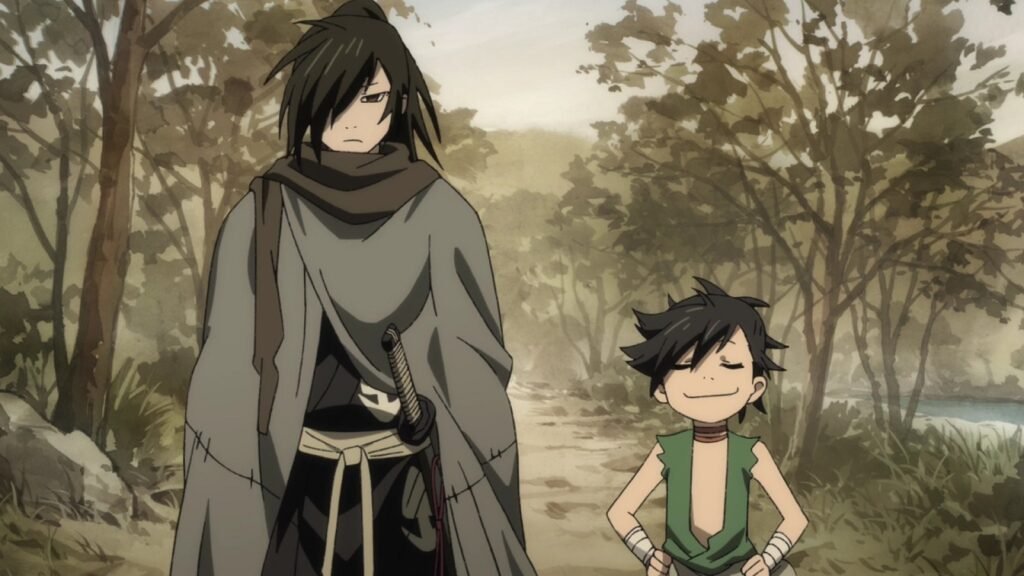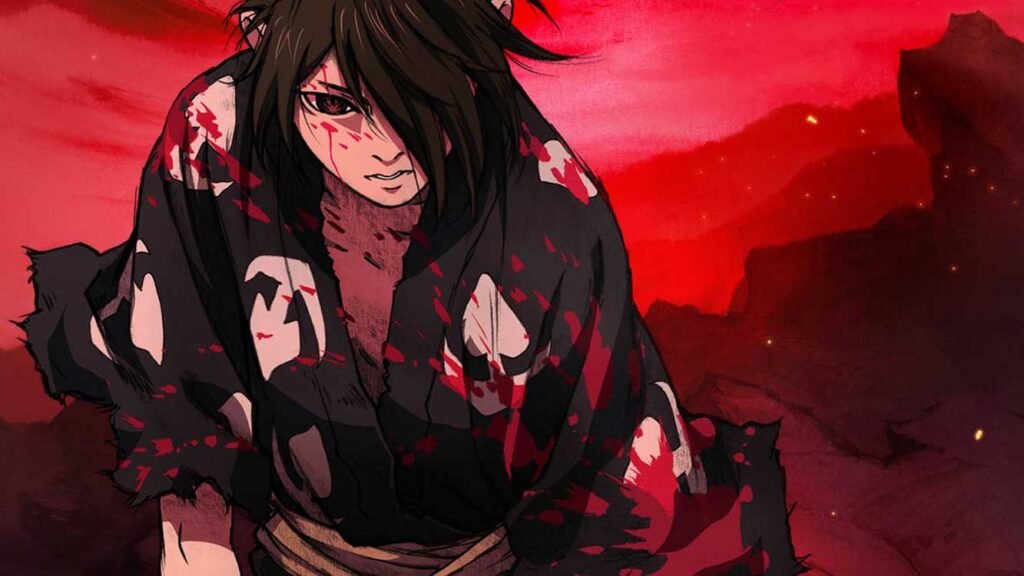Dororo is the most morally gray story one has ever witnessed in the anime community. It features a truly memorable plot where both sides were equally wrong and right, and the audience is forced to feel the sour pain for the loser. It is a morally complex, messed-up tale that loves to make you question who is truly right. Dororo was originally written in 1967 and helps shine a light on just how ahead of the curve and timeless, ‘Godfather’ Tezuka Osamu’s work is in this modern age.
Dororo’s story follows Hyakkimaru who was born in an extremely tragic way due to his power-hungry father. After dealing with 48 demons of the underworld, the father promises to sacrifice his to-be-born son for dominance over the battlefield. The result was Hyakkimaru, who was born with no organs whatsoever, simply saying he was no human, yet he survives and has been given prosthetic limbs and is also equipped with a powerful weapon built into his body. With this new body and life, Hyakkimaru aims to find and slay all the demons to reclaim his body parts one by one.

Morality isn’t simple – most people will find themselves balancing action and consequence. The Trolley problem (a thought experiment in Ethics) reveals the kind of ethics the viewer holds onto but also the reasoning behind them. Does it suggest that how much the gravity of difference changes between an indirect immoral action and a direct immoral action when the question remains fundamental? It concluded that few people believe that consequences or actions are the only important elements when debating morality, but many believe in a balance between the two (action and consequences) and intentionality (the reason for taking an action).
That balance and intention is the very thing that Dororo explores. The characters in Dororo are driven by the two moral dilemmas mentioned earlier (balance and intentionality). The moral dilemma in Hyakkimaru’s family member makes every character so much more interesting as such plights not only tear up character internally, but it gives various verges of rock-hard footing for believing their side is just.
You will require some tools to have a much better understanding of the following analysis. The concept of utilitarianism demands that useful is good and determination of right conduct should be the usefulness of its consequences. Here we are making a moral judgment about actions based on their consequences. Deontological ethics is opposite to this concept; moral judgment based on actions regardless of their consequences.

MAL’s synopsis for Dororo says, “The greedy samurai lord Daigo Kagemitsu’s land is dying, and he would do anything for power, even renounce Buddha and make a pact with demons.” This sentence alone is enough to clarify Lord Daigo’s actions and intentions but for defining the morality of his doings is it enough? Daigo sacrifices his son to demons which results in his land being prosperous (Assuming that the demons will keep the land rich to the very end, without reneging on half of their deal). Under the Utilitarian lens the action- ‘the sacrifice’ is justifiable and more importantly moral since this deal will certainly benefit many.
But in contradiction to this aspect when we take into consideration Daigo’s intentions, will this situation be still considered morally justifiable? He established the deal so that he can accomplish his own goal and it has nothing to do with the benefits of the citizens of this very land. Hence, his intentions prove him guilty.
Generally, leaders in any situation gain power for their own good, what they aim to do is keep the people happy so they can continue their rule, so it makes it hard to pick a side of what should happen. However, adding another angle to this story, was sacrificing Hyakkimaru (one of his belongings) the only option he had? He could have sacrificed himself, his own personhood.
A much deeper question remains that if Hyakkimaru should be stopped from recovering his body parts? Are his sufferings greater than that of the citizens of the very land? As Hyakkimaru regains piece by piece, the land will slowly shatters. Utilitarianism suggests that he should be stopped as that one life isn’t worth the livelihood of that very land’s people. But Hyakkimaru, who lost everything, doesn’t he deserve to be a human and regain what was taken from him?

Initially, Hyakkimaru was blinded to his actions, his sole goal was to recover what was his but when he finally understands how his actions are negatively impacting people, he still chooses the option which benefits him. No matter what, his drive continues to be set on regaining his body even if it means an entire land breaks into shreds.
But as the journey progresses, we get to see Hyakkimaru’s phenomenal development with Dororo as they explore the world together. Dororo helps to bring the best in Hyakkimaru and keep him grounded to reality and not be lost in rage and despair. Without Dororo he really would have become a demon even with all his humanity returned to him as we witness at the very end of the series.
Complex moral dilemma haunts the world of Dororo as Hyakkimaru deserves his body even if he kills a kingdom and this kingdom deserves to live at the cost of one unfortunate child. It showcases what it means to be human what it is you are willing to do to take back what is yours and the wild things people for themselves but how it can affect the masses as a whole unexpectedly.

2 Comments
Pingback: Some of The Best Side Characters who act like Sidekicks to Our Very Anime Protagonists - Craffic
Pingback: List of Anime Moments when Silent Characters raised hell - Craffic